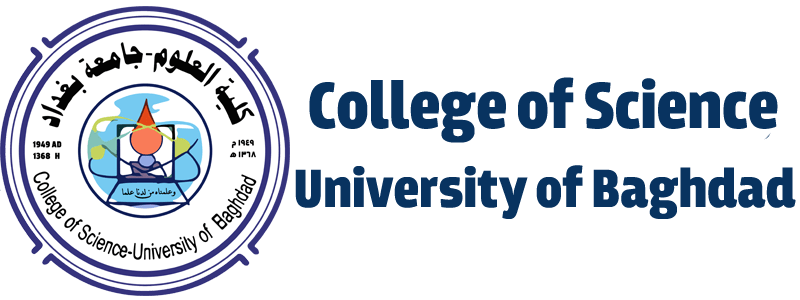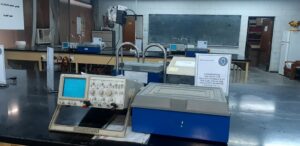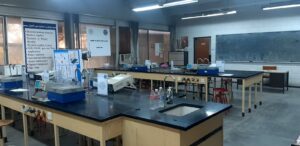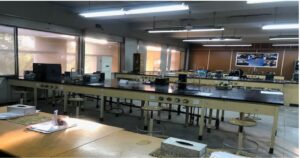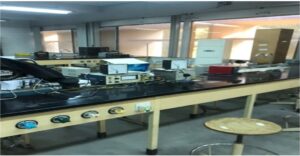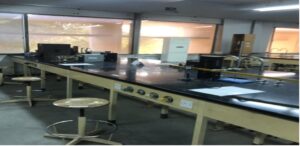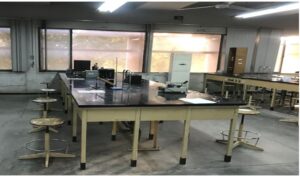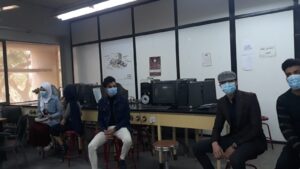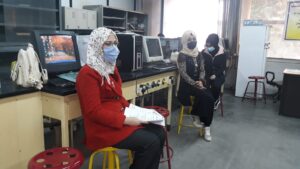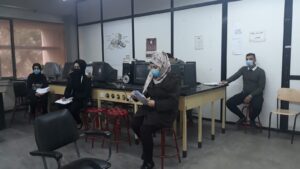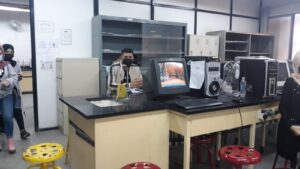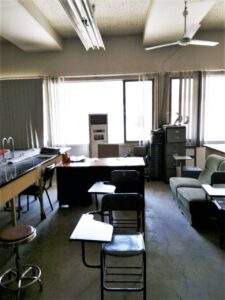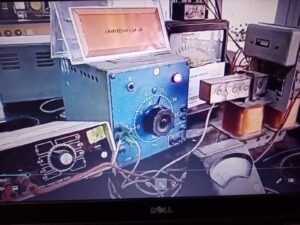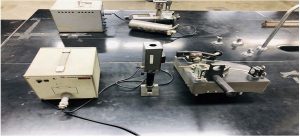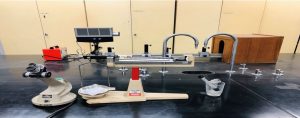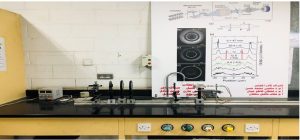Electronics laboratory
This laboratory provides experiments based on high technology in which third-stage students learn to connect electronic circuits and learn about their contents such as resistors, capacitors, transistors, and diodes. This is in addition to training students on the signal oscilloscope device in detail and connecting some complex electronic circuits.
Modern Physics Laboratory – for the second stage
The policy of the Modern Physics Laboratory is detailed and accurate explanation of practical and theoretical experiments and adherence to the specified time for the laboratory
Computer and numerical analysis laboratory
The Numerical Analysis Laboratory aspires to excellence by providing a group of software laboratories for the subjects of the Physics Department so that it achieves the highest standard levels in the field of computers, which helps prepare qualified and trained national competencies to enter the field of education and scientific research for community development with excellent standards.
Solid laboratory
The laboratory includes introducing students in the fourth stage to the concepts of the solid state of matter, including the structure of crystalline matter and its practical calculations, which are related to crystalline forms and knowledge of their concepts, as well as studying the photovoltaic properties of the silicon solar cell, determining the energy gap of semiconductor materials, and studying the properties of thin films. It also contains devices that enable students to Studying the Hall effect, the Seebak effect, and information about solar cells, as well as providing specialized scientific staff to manage the laboratory and scientific resources to help students in their scientific applications.
Mechanics laboratory
The Mechanics Laboratory is concerned with teaching and understanding the facts about the basics and Newton’s laws of motion and keeping up with the rapid developments in this field, which enable the graduate to work in the functional fields that fall within the specialty of physics. It also prepares students to work in the field of mechanics and its applications, and qualifies them to occupy work sites with high efficiency. They also have the ability to overcome the problems they face during laboratory work.

Nuclear physics laboratory
It is one of the most important laboratories in the basic sciences branch, and students of the Physics Department study in it for the fourth stage. This laboratory provides fourth-year students with experiments on how to identify devices for detecting nuclear radiation, as well as how to deal with radioactive sources and types of nuclear radiation, and perform some measurements to identify nuclear spectra, the effect of voltages and amplification on them, and the types of interactions of these radiations with matter and their effects. The laboratory area is approximately 220 square meters and can accommodate 25 students. It contains a number of necessary devices and supplies.

